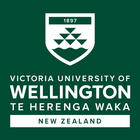University
Victoria University of Wellington
Bachelor of Music - Music Studies
This course is available
On-Campus, Online
Level of Study
Bachelor's Degree
Duration
3 years
Next start date
Expected Feb 2025
Campus
Kelburn Campus
Summary
If you love music whether it is listening to it, playing an instrument, singing or composing and want to study the subject in depth at the leading music school in New Zealand, then a Bachelor of Music is right for you.
Immerse yourself in music
The Bachelor of Music (BMus) is a three-year undergraduate degree designed to prepare you for a career in the creative and challenging world of music or in a variety of other professions.
Develop your understanding of music while working on your skills in performance or composition under the supportive guidance of internationally recognized musicians and academics. You'll be encouraged to push the limits of your creative abilities, so you graduate as a confident and skilled musician. You'll also take an academic approach to studying music and gain skills in writing, critical thinking, teamwork and communication that are valuable in many different careers.
Follow your interests
Choose to major in Classical Performance, Jazz, Composition (Instrumental/Vocal or Sonic Arts), or Music Studies. You'll study music theory and, depending on your chosen focus, you might learn in one-on-one lessons or as part of an ensemble, or focus more on music and its cultural and historical context.
If you're passionate and creative with a drive to succeed in music then this degree is ideal for you. Get prepared for a professional career in music or in a related industry, or to continue on to postgraduate studies.
First year
In your first year you're likely to take at least six courses. Most or all of these will be core courses you'll need for your major. If you're majoring in Classical Performance, Composition—Sonic Arts, or Music Studies, you'll also be able to choose one or two electives.
You might study the development of popular, art or world music, or receive basic training in harmony and counterpoint, aural perception and keyboard skills. You could also play in the big band or orchestra as part of a large ensemble course. Performance students will give a 15–20-minute recital at the end of the year.
By the end of your first year you'll have a solid foundation in your major subject.
Second year
In the middle year of your degree you're likely to take a minimum of six courses. In this year there are fewer core courses and you'll have more choice to follow your particular interests or career aspirations. You might take a gamelan performance course, learn about recording, mixing and audio production, be part of a fusion jazz ensemble or study 19th century European music.
Performance students will give a recital at the end of the year of approximately 30 minutes.
At the end of your second year you'll be developing your creative and academic skills and be ready for more advanced music study in your final year.
Third year
In the third year you'll study primarily 300-level courses but are likely to take two or three other electives from courses at 200 or 300 level.
Get a Master's degree
At the end of your three-year BMus you can choose to continue your learning with postgraduate studies. Give your career options a boost and choose from a range of postgraduate programmes offered.
Get a broad education in music in this innovative and dynamic subject area. Develop your academic expertise in music while including some elements of performance or composition. You'll study a range of musical styles from historical, critical, analytical, and creative perspectives. Follow your interests and choose from a diverse range of courses.
Entry criteria
Achieve the International Baccalaureate Diploma, or three GCE Advanced Level passes at C grade, or equivalent.
Proof of English proficiency
To be accepted into this programme you will need one of the following:
IELTS: minimum overall score of 6.0 with no sub-score below 5.5
TOEFL: minimum overall score of 80 (internet-based test)
Pearson Test of English: minimum score of 50 (with a 'Communicative score' of not less than 42)
EPP: minimum final scores of 4,4,4,3
Studying in NZ
Disclaimer